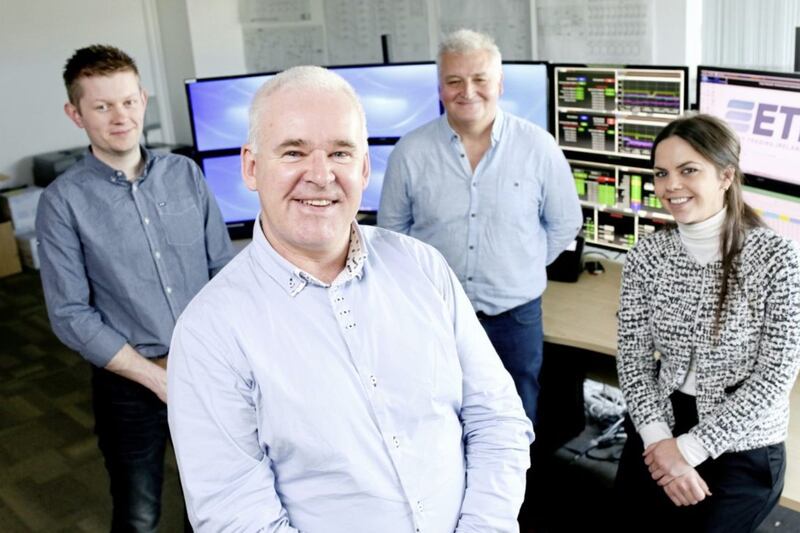A VIRTUAL power-broking trader headed up by one of the north's most senior grid operators is to set up a new control centre in Dundonald, doubling its workforce in the process.
And it will encourage large businesses in the north with standby diesel generators to consider "load shedding", where they switch off their power on demand for brief half-hour periods - and be paid tens of thousands of pounds for doing so (indeed one firm claims to have generated savings of more than £1 million).
The market shake-up is being led by energy solution specialist and demand side unit (DSU) operator Energy Trading Ireland (ETI), owned and managed by industry stalwart Michael Jackson.
ETI, created in 2013, has confirmed ambitious expansion plans with the opening of a cutting-edge trading and control centre and the creation of five new roles, doubling the size of its workforce.
The planned expansion follows a period of sustained growth and investment which saw the company increase turnover by 30 per cent last year.
Licensed to operate in both Northern Ireland and the Republic, ETI helps companies manage their energy needs and maximise income from the single electricity market.
The company, which also has a base in Dundalk, provides some of the largest energy users and best-known companies on the island of Ireland with "demand response" income and offers ancillary services including fast frequency response as well as energy management services.
Manned 24 hours a day, the new facility will employ a highly sophisticated supervisory control and data acquisition (SCADA) system that can monitor and control various generation technologies including wind turbines, AD plants, gas and diesel generators as well as monitoring and controlling customer’s plant facilities.
ETI’s specialist services allow energy users to generate additional income from capacity payments for temporarily reducing all, or part, of their electricity demand on the grid by either ‘switching off’ or using on-site standby generation when necessary.
The company works with businesses - ranging in energy usage size from 100kWs to 22MWs - in sectors such as manufacturing, production, engineering, hospitality, agri-food and quarrying.
ETI head Michael Jackson has 35 years’ experience across the sector, including 21 years as senior grid control engineer at the electricity System Operator for Northern Ireland (SONI).
He told the Irish News: “Employing technically advanced and innovative ICT, our new control centre will be the perfect facility from which to respond to a growing call for dependable demand side services in Northern Ireland, the Republic of Ireland and the UK.
"When you are working with some of the region’s most high value businesses, it’s essential that you safeguard their productivity, which we can confidently manage due to our in-house expertise and cutting-edge control centre.”
He added: “We’re a solutions driven business. With expertise across all industry sectors we have steadily grown our client base due to our ability to provide bespoke energy management solutions based on what is right for the customer as opposed to ‘off-the-shelf’ services.
"Our customers also value our proven engineering capability. In the ETI team we have staff who have experience of running the €2 billion a year Single Electricity Market, commissioning the 600MW power plant at Ballylumford power station and commissioning over 70 wind turbines.
"This experience, coupled with our outstanding new facilities and growing workforce, means we are well equipped to help customers better manage their energy needs while also ensuring a security of supply across the grid.”
ETI is expecting to benefit this year from the Integrated Single Electricity Market (I-SEM), a new wholesale electricity market arrangement for Ireland and Northern Ireland.
The new market arrangements are designed to integrate the all-island electricity market with European electricity markets, enabling the free flow of energy across borders.
By the time the I-SEM goes live, the market is expected to comprise more than 20 bidding zones, coupled by more than 40 cross-border interconnectors, containing a total generating capacity of over 3,000 terawatts.



